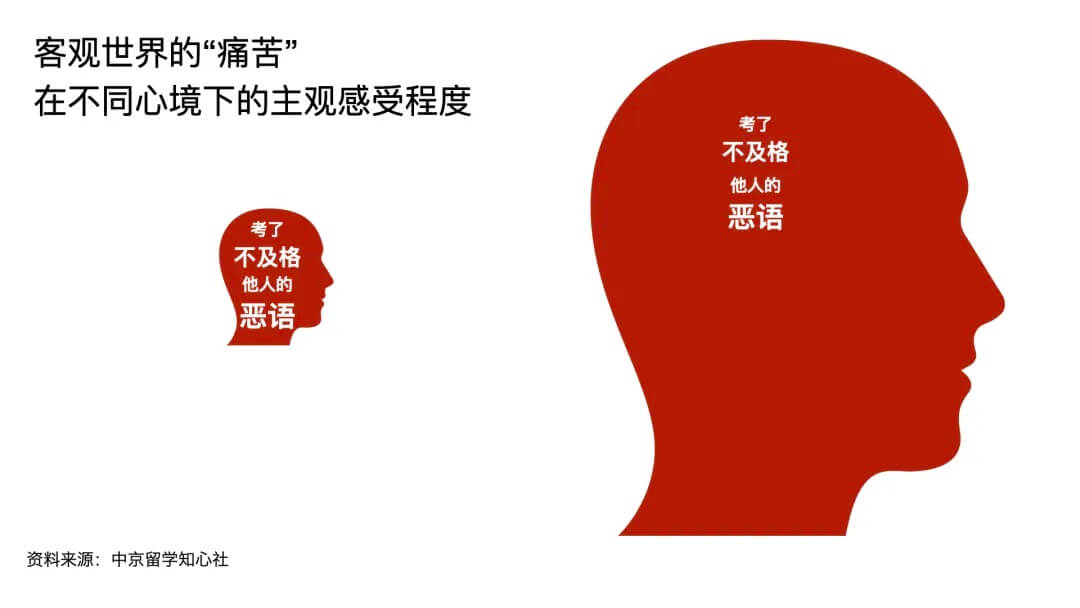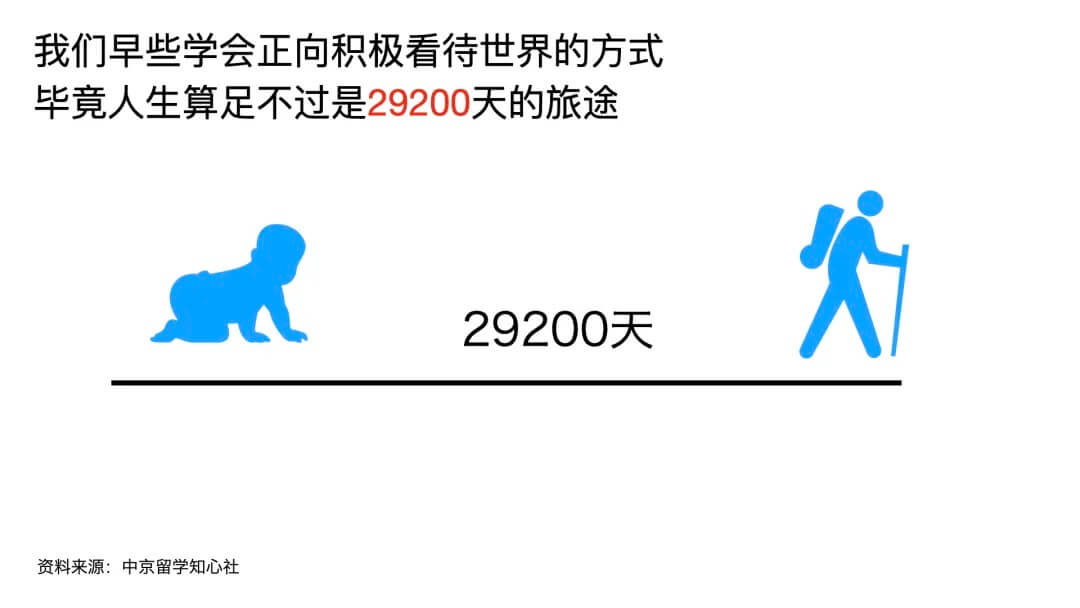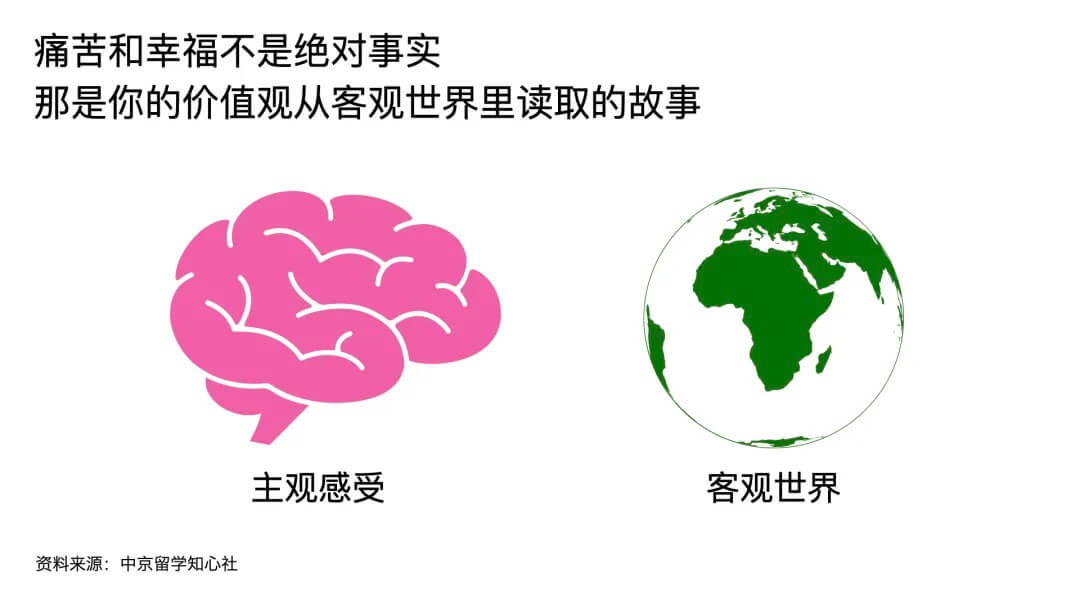

By Ezra Cai
16 Jan 2024

I sprinkled a ladle of salt on the small pond at the village entrance, and the frogs in the pond said, 'It's so salty.'. I poured a ladle of salt into the big river, and the fish in the river said, 'There's no taste, let's have some more.'. Salt is like the difficulties, setbacks, and confusion that each of us G5 candidates may encounter in our studies, daily life, and future career paths. Ponds and rivers are like the state of mind, pattern, and perspective of each of us, which we also call the "core".
The lesson we are going to teach at Zhixin Society today is not about how to reduce the hardships and setbacks in our learning and life. We have all studied economics, which tells us that resources on the earth we rely on for survival are already scarce. However, our hearts crave more. With limited resources and infinite desires, various material, emotional, and social needs that cannot be met will become various difficulties that block our learning, life, and work paths.

Since difficulties cannot be reduced, expanding one's mindset, enhancing one's inner core, and allowing one's inner core to tolerate more difficulties and setbacks, letting a spoonful of salt not affect or minimally affect the bowl of "perceived happiness soup" one cooks, is a lesson worth learning and a survival skill worth mastering with one's heart.
Before class, I would like to ask everyone if they have had such an experience. When I was in elementary school, if someone called me a 'fool', I had to retaliate no matter what, otherwise I couldn't swallow this anger. In middle school, high school, college, and entering society, hearing the word 'stupid' already brings a faint smile to my heart, and I realize that 'stupid' doesn't sound so derogatory, but rather a bit cute.

In elementary school, I didn't get a perfect score in any subject. My parents didn't see me as outstanding anymore, and I felt like the sky was falling. In college, with a GPA below par and occasional minor failures, I never felt the need to report to my parents and hold a critical meeting.
The words are still the same, the salt is still the same salt. What has changed is the state of mind from elementary school to university. As we grow up, the people we have interacted with, and the things we have experienced, make our state of mind bigger. The "bad words" we used to hear are no longer effective for us. The result of a solid state of mind is that we are able to accept more and more dissatisfaction and dissatisfaction from the objective world, and the result of acceptance is the perception of happiness and happiness.

So the essence of this class is "topic separation", which separates objective and subjective perspectives, cultivates and controls subjective perception, and separates the unsatisfactory aspects of the objective world. When we cling to the desire to control and change every outcome that arises in the objective world, it may be a hidden word from someone else, a gaze from someone else, or an unsatisfactory exam result. This is something that has already occurred in the objective world, and it is difficult for you to change the behavior and words of others.
It's like you hate the rain, you persistently want the sky not to rain, it's like you hate touching fish bones, you persistently make the fish grow without thorns. This objective world belongs to every blade of grass and every tree, every person and every object. In the objective world, each of us exists equally, speaks equally, and lives equally. We cannot persistently change the objective world based on our subjective feelings.

Imagine that we were once in the stage of being a little brat before the age of ten. Every brat before the age of ten, whenever they encountered dissatisfaction in the objective world, such as milk being too hot, toys being too few, or a mother being too aggressive, would subjectively trigger their temper and cry, because that was the most normal way for babies to obtain and perceive love. Due to the child's temper and crying, parents will respond quickly. At this stage, we can feel love and security in such responses.
However, after all, we cannot always be 10-year-old kids. After the age of 18, we gradually gain objective understanding that our temper and crying at this time will not change the grades we fail on paper, nor will they change the behavior and language of our friends or people around us. At this point, we understand the importance of "topic separation", as the world does not always revolve around our subjective feelings.

The happiness and joy we feel are subjectively felt and created. Even if we fail once, we hug ourselves, calm down and analyze the reasons for our mistakes. We believe that we have the ability to avoid mistakes and achieve better results in the next exam, and use our abilities to change our grades and outcomes in the objective world.
After going from U to E and then from E to D again, D will gradually become A and B, and relay towards A *. This kind of effort in the objective world will leave traces, which are the "mind amplifier". The traces left by repeated efforts in the objective world make one's mind bigger and bigger, and with it, the ability to withstand setbacks from the objective world becomes stronger and stronger.

So I say, don't underestimate the climbing experience from U to A. On the surface, we only improved our grades from U to A, but behind this lies the subjective emotions that went through disappointment, inferiority, self abandonment, carrying pressure, working hard secretly, and finally crying with joy. This complete process creates traces in our subjective perception of the world, which I call emotional scars. Scars are not scars, scars are healed scars that record your growth. If you experience the same thing again in the future, you can handle it calmly and with a smile.

The same principle applies to transitioning from academic life to future life and work. In life, we encounter social interactions, and with social interactions, we encounter language. Language always leads to conflicts and misunderstandings. Today, you learned the lesson of "topic separation" at Zhixin Society, and you know very well how to view language in the objective world separately.
You understand that when you encounter people and things, words and actions that you have never experienced before, it is easy for you to develop negative and unpleasant emotions due to unfamiliarity and insecurity. However, at this moment, you will strive to analyze calmly, calm down your subjective feelings, search for similar scars and experiences in your mind, see commonalities from them, and regain rationality. With more practice like this, whether it's intense learning in the future or complex and diverse social relationships, you can excel in the lesson of "subjective emotion management".

We are all little frogs in the pond of life, experiencing more, growing more, perceiving more, learning to separate topics, learning to distinguish between the objective world and subjective feelings. Even in the face of more "salt sprinkling", our vast and mature state of mind will surely calmly and gently perceive the little things about beauty and warmth in the world.
Source: Ningbo NBCK
Article: Economic and Business Association
Image: Koi Lu
Editor: Ezra Cai
Reviewer: NBCK Integrated Media Department